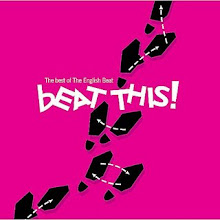
Trickster is at the same time, creator and destroyer, giver and negator, he who dupes others and who is always duped himself. He possesses no values, moral or social, is at the mercy of his passions and appetites, yet through his actions all values come into being.
Few mythological figures have such a remote origin in time and broad distribution among cultures as the one called Trickster. This character has long puzzled its commentators, largely because Trickster defies any purely rational or intellectual analysis. In fact, anyone who has studied any particular trickster story can testify to its disturbing undertones of perplexity and provocation.
Trickster contains a transcendent nature whose epic qualities are truly awesome. We can think, for example, of when Maui, the Polynesian Trickster, snares nothing less than the sun. Yet with all his enormous power he is enormously stupid, the fool of the ages, the epitome or personification of human absurdity.
In world mythologies Trickster's guises are legion; so much so that Joseph Campbell, has called him The Hero With A Thousand Faces.
This outlandish, yet remarkable being in human form, learns, grows in understanding, changes, and at a certain point in his adventuresome blunders, is transformed. Until that moment, however, Trickster keeps changing shape and experimenting with a thousand identities, including shifts in sex, in a seemingly never-ending search for himself.
During all this he inflicts great damage on those around him and also suffers innumerable blows, defeats, indignities, and dangers resulting from his thoughtless, reckless forays. On entering upon existence he is first seen as a blurred, chaotic, hardly unified being, having no self-knowledge or life-knowledge, despite his divine parenthood. It is only later on in his travels that Trickster emerges as a culture hero, demigod, and savior of peoples. But this occurs only after his transformation or self-integration takes place, and brings to the fore the great and epic qualities initially given him by his divine progenitor.
The unity of Trickster with Hero-Benefactor is clear in a great number of the mythoi. The hero must trick the gods of their wealth, steal it, and in some manner make it available to humankind. This heavenly treasure usually is "fire" or is related to it. Raven steals the gods' fire sticks. Maui goes against Mahu-ika, the guardian of fire, to get it and bring it back to the people. In Greek myth it is Prometheus who does this. The many references to the sun-snaring feat of Trickster-turned-Hero extend illustration of this development (Katharine Luomala, Oceanic, American Indian, and African Myths of Snaring the Sun, Bernice P Bishop Museum Bulletin 168, Honolulu, 1940; reprinted by Kraus Reprint Company, N.Y, 1971). The hero who deceives, slays, or by his "wiles" appeases the gods, is honored as a savior of the world.
Trickster's hero qualities were present from the very beginning. But they lay dormant, in seed, until he decided to exercise them, which he did only after a long and painful process of trial and error, growth and metamorphosis. For in all of his manifestations Trickster remains a primordial being of the same order as the gods, despite his prolonged sojourn in the human condition.
No matter how often scholars have analyzed this myth in the attempt to reduce it to any strictly rational value, it endures in all of its polyfaceted and multileveled grandeur. To restrict understanding of it merely to one or two of its features would be to rob us of its unusually important meaning. For serious reflection upon the myth in all of its world variety brings a conviction that it can refer only to the evolution of human consciousness and the full range of phases and multiple colorations which this implies. Yes, the evolution of our consciousness, but from a gigantic perspective and nothing less, one which carries us back to the fabulous illo tempore: into the night of time millions of years ago to the magic moment of first creation, that, dawn time "when first the world was born" and we "walked with the gods."
From the initial dimness of a consciousness newly-born, lacking any real integration of its components, and having forgotten his divine mission, we follow Trickster as his awareness steadily comes forth in ever greater measure. We watch as the self-knowledge of this inchoate entity develops, bringing with it strength, remembrance, and a firmer sense of identity, all this until, at a certain point, by capturing the fire of inner illumination from the gods, he gains a full measure of self-consciousness or self-recollection, and can act to benefit mankind. To use Jungian terms, the Unconscious within himself has been transmuted into the Conscious, bringing lucidity of spiritual vision of self and the universe.



No comments:
Post a Comment